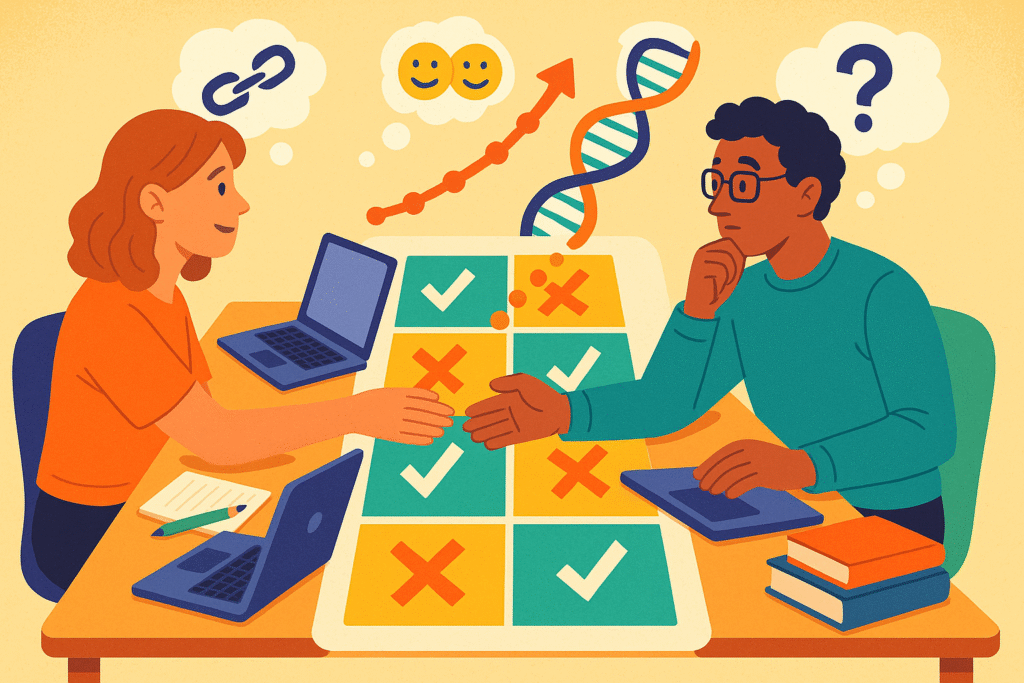
You and a friend decide to study together every week. Most days, you both show up and share notes. Now and then, someone is late, or a message gets lost, and the plan derails. Do you quit, forgive, or try a new routine? Kristian Lindgren built a simple computer world to study choices like these. In his world, many “students” play a repeated cooperation game, sometimes make mistakes, and learn over generations which habits survive. The surprise is that small errors don’t just cause chaos. They can encourage communities to adopt smarter, fairer ways of cooperation.
Here’s the setup in everyday terms. Each player follows a short rulebook, like “if they helped me last time, I help now.” These rulebooks are like tiny genomes with memory, and they can change through “mutations” such as flips, copies, or trims—simple edits that create new habits to test. Everyone plays everyone, good habits earn more “offspring,” and the game keeps going. Even a classic friendly rule like “Tit for Tat” struggles when messages glitch, averaging less than perfect because error cascades can lock partners into pointless payback. Lindgren illustrates how this occurs and how new, stricter rules emerge when mistakes are prevalent.
What grows out of this messy mix is very relatable. Populations sit in long, calm periods, then flip fast into something new—like a group project that works for weeks and suddenly collapses when one shortcut spreads. Sometimes two different “okay-but-flawed” rules prop each other up: when they meet, they sync and recover cooperation after a slip, even though each one alone would spiral into conflict. Later, sturdier rules emerge that recall a bit more history and respond to one defection with two firm responses before returning to peace. That move blocks freeloaders and keeps the average payoff high even with noise, much like setting clear boundaries after someone flakes.
So what can you use today? First, expect errors and design for recovery. If a friend misses once, don’t nuke the friendship; try a brief, clear consequence and then reset. Second, remember that patience plus memory beats snap reactions. Keeping track of the last couple of interactions helps you respond fairly, not just emotionally. Third, watch for sneaky patterns that benefit in the short term but ultimately erode trust; they can cause “extinctions” where good vibes vanish for everyone. Lindgren’s message is simple: cooperation is not naïve. With the right habits, it’s robust, even when life is noisy.
Reference:
Lindgren, K. (1991). Evolutionary Phenomena in Simple Dynamics. In C. G. Langton, C. Taylor, J. D. Farmer, & S. Rasmussen (Eds.), Artificial Life II, SFI Studies in the Sciences of Complexity. Santa Fe Institute. https://www.researchgate.net/publication/258883366_Evolutionary_Phenomena_in_Simple_Dynamics
Privacy Notice & Disclaimer:
This blog provides simplified educational science content, created with the assistance of both humans and AI. It may omit technical details, is provided “as is,” and does not collect personal data beyond basic anonymous analytics. For full details, please see our Privacy Notice and Disclaimer. Read About This Blog & Attribution Note for AI-Generated Content to know more about this blog project.